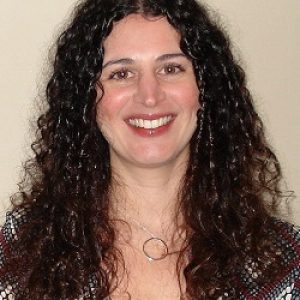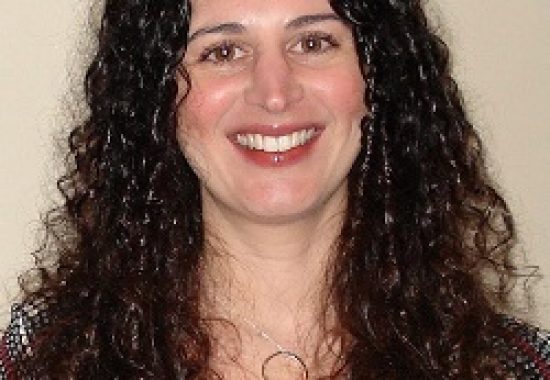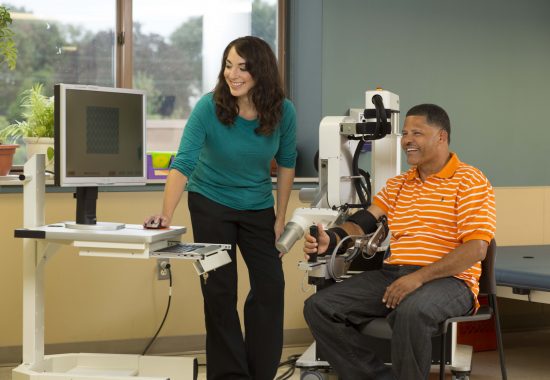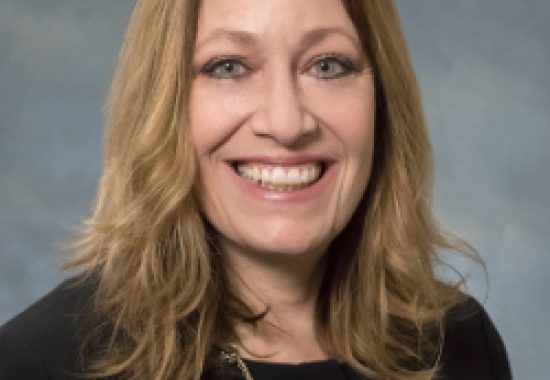For 30 years, Moss Rehabilitation Research Institute has been conducting research spanning basic neuroscience to clinical neuroscience and neurorehabilitation with an eye toward improving the lives of individuals with neurological disabilities. In the latest episode of the MossRehab Conversations podcast, MRRI Founding Director John Whyte, MD, PhD, current MRRI Director Dylan Edwards, PhD, and Associate Director Laurel Buxbaum, PsyD, look back at what the institute has accomplished and ahead at the work that is still to be done.
Author: Larry Blumenthal
Relieving Phantom Limb Pain Using Virtual Reality
Many people who have lost a leg or arm experience a persistent sensation known as a “phantom limb”, which can be associated with debilitating pain. Current therapies fall short of bringing relief to most of these individuals, but recent research using virtual reality equipment is showing promise.
In this video, MRRI Associate Director Laurel Buxbaum, PsyD, explains the reearch and results so far.
Antonucci Presenting at ASHA Convention
 Sharon M. Antonucci, PhD, CCC-SLP, director of the MossRehab Aphasia Center, is presenting at the American Speech-Language-Hearing (ASHA) convention in Boston on November 16, 2018.
Sharon M. Antonucci, PhD, CCC-SLP, director of the MossRehab Aphasia Center, is presenting at the American Speech-Language-Hearing (ASHA) convention in Boston on November 16, 2018.
Her talk is entitled, Strategic Outcome Measurement using the Life Participation Approach to Aphasia. Continue Reading
Understanding How People Plan and Execute Skilled Movements
Aaron L. Wong, PhD, an institute scientist at the Moss Rehabilitation Research Institute, studies how people gain the ability to perform skilled actions – the movements exhibited, for example, by professional athletes, dancers and musicians – as a model for how individuals might recover movement abilities following neurological disorders or stroke.
In this video, he discusses his research using a robotic arm to understand how motivation in the form of reward can be used to help people more efficiently reduce their movement errors.
Continue Reading
MossRehab Ranks Among Nation’s Best, Again
MossRehab, the renowned physical and cognitive rehabilitation arm of Einstein Healthcare Network, has again been named by U.S. News & World Report magazine as a top 10 rehabilitation facility in the country. MossRehab is also the top ranked facility of its type in Pennsylvania.
This is the 25th time the facility, which provides rehabilitation for spinal cord injury, stroke, amputation and traumatic brain injury, among other conditions, has made the list.
The Moss Rehabilitation Research Institute is MossRehab’s research component. Continue Reading
Videos Explore MRRI’s Research Activities
Over the past few years, MRRI has been producing videos of our scientists explaining their research projects and the implications of what they are learning for the field. It is all part of our mission to improve the lives of individuals with neurological disabilities through research.
Now, you can explore the videos in one place on the MRRI YouTube channel. Continue Reading
Creating a ‘Yardstick’ for Measuring Progress in Rehab
In physical medicine and rehabilitation, doctors and therapists generally measure progress using the Functional Improvement Measurement (FIM)™ – a widely accepted scale designed to gauge the functional abilities of patients undergoing rehabilitation.
The problem, according to John Whyte, MD, PhD, director of the Moss Rehabilitation Research Institute, is that the FIM score doesn’t provide enough detail to distinguish between patients throughout the entire process of rehabilitation.
In this video, Dr. Whyte talks about his project to develop a more effective means of measuring patient progress. Continue Reading
Buxbaum, Colleagues Publish Study on Phantom Limb Pain
Standard treatment generally doesn’t provide relief for people with amputations who experience phantom limb pain. However, research on the use of virtual reality has recently shown promise for this new approach.
 Laurel J. Buxbaum, PsyD, associate director of MRRI, and colleagues from the University of Pennsylvania and the Max Planck Institute for Intelligent Systems, in Stuttgart, Germany, recently published research about the use of immersive low-cost virtual reality treatment for the treatment of phantom limb pain. Continue Reading
Laurel J. Buxbaum, PsyD, associate director of MRRI, and colleagues from the University of Pennsylvania and the Max Planck Institute for Intelligent Systems, in Stuttgart, Germany, recently published research about the use of immersive low-cost virtual reality treatment for the treatment of phantom limb pain. Continue Reading
Better Defining Medical Rehabilitation Treatments
When a doctor prescribes medical rehabilitation for a patient he or she often describes it in terms of time length (12 weeks), the institution where it will occur or the type of rehab – (physical therapy vs. gait training, etc.). None of that specifies what the therapist is actually expected to do. In this video, John Whyte, MD, PhD, founding director of the Moss Rehabilitation Research Institute, discusses his research on defining the active ingredients that need to be part of the therapeutic process. Continue Reading
Evaluating Aphasia Conversation Groups
The MossRehab Aphasia Center was founded over 20 years ago to meet the long-term communication and psychosocial needs of individuals who have been affected by aphasia. Over the years, conversation groups have become a core component of the activities the Center offers to people with aphasia.
In the Constance Sheerr Kittner Conversation Cafes, members have the opportunity to have their voices heard in a supportive environment. Adult conversation and social interaction are encouraged, with all group members engaging in communication strategies.
Recently, the Aphasia Center began a research project into measuring the effectiveness of these conversation groups.
In this video, Aphasia Center Director Sharon Antonucci, PhD, CCC-SLP, discusses the project, which focuses on finding the best metrics for tracking success among participants in this group.



